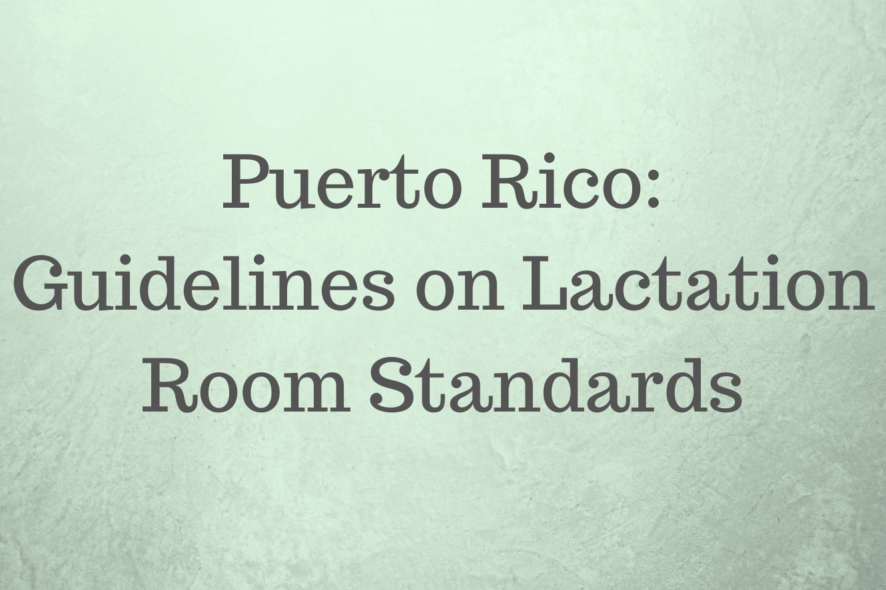The Woman’s Advocate Office (‘WAO’) of Puerto Rico has published Guidelines on the Acclimatization of Lactation Rooms[1] on 11th February, 2021. The Guidelines are effective immediately and shall apply to both public and private-sector employers. They set out 10 criteria that the lactation rooms provided by the employees must be in compliance with the Puerto Rico laws governing a working mother’s right to breastfeed and the child’s right to be fed.
The Guidelines acknowledge that a designated space for lactation must be ideal and that the mother’s peace of mind is an important factor to this process. Therefore, pursuant to the Guidelines, lactation rooms provided by employers must be secure, private, and clean. Specifically, the Guidelines list 10 criteria that lactation rooms in the workplace must meet:
- Security – The lactation room must have a lockable door and must be safe for the mother and the child.
- Privacy – The Lactation room must be for the exclusive use of lactating mothers.
- Lactating mothers should have the facilities necessary to clean both their hands and the equipment used to extract breastmilk, before and after its use. As such, lactation rooms are required to have either a bathroom sink or any other type of sink. Bathrooms cannot be an alternative to lactation rooms. All employers must document and include the steps involved in the lactation room’s cleaning process.
- Adequate Space- The lactation room must be furnished with a support table or some other type of support for the equipment used for expressing milk, and a comfortable chair.
- Electricity Outlets- This is to allow the connection and use of electronic devices for expressing milk.
- Ventilation- The lactation room must have adequate ventilation and be free from air contaminants that may affect air quality within the room.
- Milk Storage- Lactation rooms must contain a refrigerator where the breastmilk may be stored.
- Accessibility- Lactation rooms should be easily accessible to lactating working mothers.
- Exclusivity- The lactation room should only be used for expressing breastmilk to ensure that the space remains clean and secure. Thus, it must be closed at all times under lock and key.
- Applicable Regulations- Employers must have a policy that establishes the correct use of the room.
- Lastly, the Guidelines have attached a “WAO’s Lactation Room Inspection Form” for inspection of lactation rooms, either by request or on their own volition.
The Guidelines make clear that private and public sector employers must provide a safe, clean, and private place for lactation. This is to ensure that both the working lactating mother’s right to choose how to feed, and the child’s right to be fed, are not infringed upon.
*Tanvi Singh, Editorial Assistant has put this story together.
[1] http://www.mujer.pr.gov/OPM/Leyes_Reglamentos/Leyes%20Y%20Reglamentos/GUI%CC%81A%20PARA%20LA%20HABILITACION%20DE%20LAS%20SALAS%20DE%20LACTANCIA_revMSA.pdf







